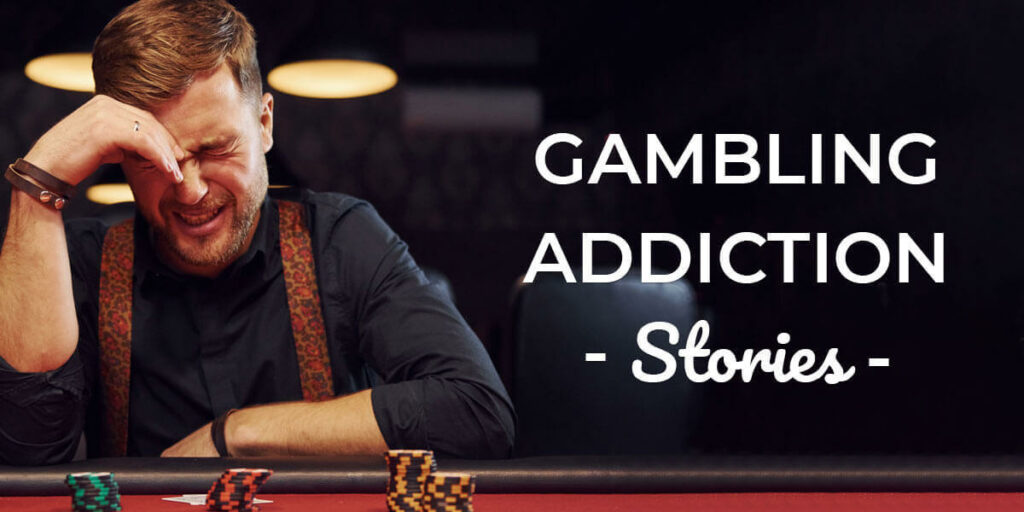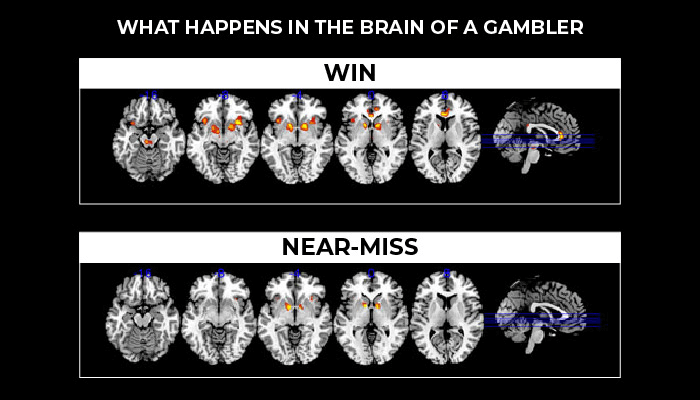Stories of Overcoming Gambling Dependency – From Incessant Betting to Complete Healing

Stories about gambling addiction might seem depressing, but understanding the effects of obsession at the casino on your mental and personal life could be beneficial in the future.
When you comprehend the potential outcomes of gambling irresponsibly, you'll gain the knowledge to manage your impulses effectively.
Gambling Addiction Explained
It's recognized that gambling can be alluring without sufficient self-control. Research also indicates that compulsive gambling is more prevalent in individuals with previous substance abuse issues, and certain medical professionals even label it as a characteristic of OCD or bipolar disorder.
Addiction originates from two reward systems in the brain that drive a person's actions – the cravings and the enjoyment.
There are common threads among all addicts
Upon reviewing numerous gambling addiction cases, we've noted several shared experiences. Most addicts regret damaging their relationships with close ones even more than the financial losses incurred.
Thankfully, scientific advancements are on the cusp of offering solutions for addiction. Soon, casinos will serve purely as a mode of entertainment for everybody rather than a shortcut to wealth. Let's explore stories about gambling addicts who managed to beat their dependencies:
Tony and Prof David Knots – Decoding the Brain of a Gambling Enthusiast
Daniel – A Journey from Wealth to Gambling Obsession
Matthew – From Collegiate Aspirations to Gaming Dependency
Final Thoughts
Tony and Prof David Knots – Delving into a Gambler’s Psyche
Prof. David Knots, an addiction treatment expert, argues that a gambling addiction is a neurological disorder exploited by the casino industry rather than a lack of willpower. Once addiction grips you, quitting suddenly becomes very challenging.
The peril of addiction lies in its ability to hijack the brain, aligning it with the desires fueled by casino games. Prof. Knots crafted an experiment to visually demonstrate the brain's response during a gambling session.
How the experiment was conducted
The professor exposed the volley of activity within Tony's brain as he engaged a keypad to place bets on a simulated roulette whilst lying inside an MRI machine. Tony is a compulsive gambler who teamed up with Dr. Knots to beat his addiction.
The experiment showed us how certain brain regions are activated during a gambling event, which can’t be easily turned off. Prof. Knots hypothesizes that gambling triggers chemical reactions, given the overactivity of habit circuits compared to a regular mind.

Let's take a visual look at how Tony’s brain reacted over a round of roulette:
Placing a Bet
During the betting process, the brain displayed minimal activity, mulling over options, as noted by Dr. Knots – the activity was subdued.
The Roulette Spin
In sharp contrast, when the roulette started spinning, the visual component at the brain's rear lights up vigorously. This rapid transformation occurs within mere seconds as Tony fixates on the spinning ball, hoping for a favorable outcome.
Upon analyzing the MRI data, Dr. Knots recognized that the emotional sectors, each in distinct zones, light up during the spin.
The anterior cingulate cortex and the insula are two pivotal areas that interpret emotions, creating a turbulent sense of anticipation and questioning your fate.
Winning
The major distinction between hitting a win and anticipating a win comes down to the gratification area. Essentially, the brain murmurs, 'Hooray! I've won, let's try once more!' But awaiting and witnessing a win feel quite similar.

Anticipation stimulates the brain
While gambling, it’s crucial to remember that winning isn't the sole factor that excites the brain. Consistent bets, whether they end in loss or gain, stimulate the mind equally.
When undergoing a session at a fixed-odds betting terminal, your brain experiences these stimuli every 20 seconds, translating to hundreds during a typical session. Eventually, this evolves into a habituated pattern leading to addiction.
Daniel – Transitioning from a Millionaire to a Gambling Buff

Daniel, a fervent gambler, confesses to losing control upon entering a casino environment. But his addiction had roots far beyond gambling establishments.
Initially a profitable investor, Daniel amassed a fortune through risky stock trades. By 25, he was living luxuriously with a million-dollar fortune, including a prestigious wife, lavish mansion, luxurious cars, and excess wealth for extravagant spending.
Anyone can fall into addiction
Despite achieving millionaire status, Daniel was ensnared by gambling’s allure. Efforts to restrain his desires only raised the stakes, eventually leading to addiction alongside burgeoning alcohol and cigarette dependencies.
Daniel attributes his compulsive nature to stress.
Addiction – Whether Online or Offline – Remains the Same
Presuming that shunning physical casinos and croupiers would stave off addiction proved wrong. Beginning with digital poker, Daniel found himself trapped by surging stakes.
In short order, his financial ruin strained familial relations, emptied jointly-saved accounts meant for vacations and schooling, and led to theft from personal and professional circles.
Fortuitously, by enlisting in a responsible gambling program and self-excluding from online platforms, Daniel realized that money lost can be recovered, but personal harm cannot be undone.
Matthew – From Student Aspirations to Gaming Dependence

Matthew was pursuing college at Leeds University but was ensnared by a burning desire to clinch vast winnings. This ensnarement spiraled, leaving him unable to cover rent within a year which forced an early departure from academia.
After prematurely abandoning education, Matthew pursued menial employment yet continued channeling earnings into his gambling habits. Recognizing an unsustainable path, he returned to live with his mother. Secretly, he nurtured his gambling propensities using loans and credit cards.
Friends and Family can help a lot
Living a double life, Matthew concealed his addiction from family until his wife contacted Gamblers Anonymous, whose guidance was pivotal in his recovery.
Matthew cites physical activity as instrumental to his recovery process, committing to abstain from gambling for the welfare of his close-knit relations.
Since moving past his addiction, Matthew now advocates for gambling awareness, pushing for governmental alerts on the harms of compulsive gambling, and bans against misleading advertising for gamblers.
Final Thoughts
Our hope is that these accounts of gambling addiction illuminate the repercussions of excessive wagering. According to the Association of British Bookmakers, 99.5% of gamblers partake responsibly. Since addiction is a multifaceted, intricate disorder, the gaming sector emphasizes responsible gambling.
Although statistics indicate that gambling addiction isn’t widespread, it’s essential to stay vigilant and select casinos featuring opt-out mechanisms for autonomy whenever needed.
Self-discipline and conscientiousness stand essential
Our suggestion is to establish a monthly gambling budget and avoid exceeding it. Seek assistance if overwhelmed or spending excessively. responsible gambling organization .
Professional guidance can ease the journey of conquering addiction, allowing a view of gambling as just entertainment, not a direct income stream.
References: